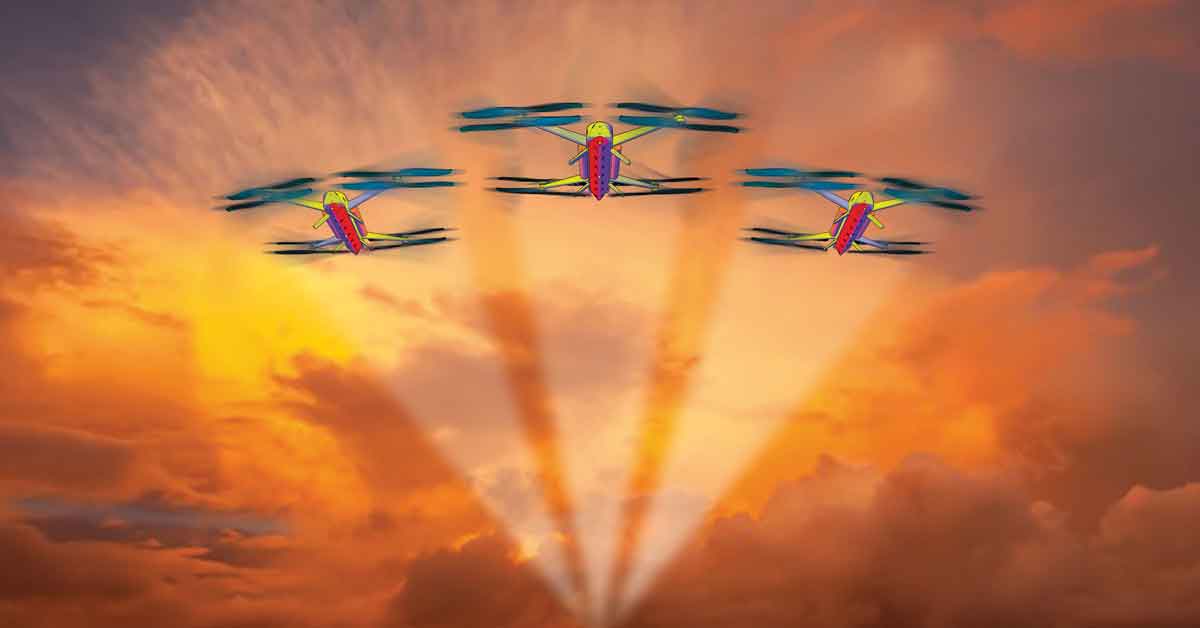Design is a transformation process. The idea is to transform problems into solutions through creative design thinking. With guidance from Dr Lawrence Farrugia, Daniela Quacinella, and Dr Sarah Pulé, we (Benjamin Farrugia and Andrea Gerada) have researched and designed a conceptual product-service which could revolutionise the marine fire rescue industry using drone technology.
Fires do not wait for help to arrive; delays cause fires to amplify. According to our research, it seems that drones and smart technology are already being put to good use to fight both bushfires and urban fires, but not marine fires.
Water is not used to combat fire on ships as it can flood and sink them. Meanwhile, employing chemicals to fight fires at sea only leads to more environmental pollution. It goes without saying that a ship is not a building. Marine firefighting is different!
Our smart marine firefighting service model, Coast Guardian, explores the concept of using sound to suppress fire at sea. This builds upon the work of two engineers from George Mason University who have prototyped acoustic suppression. This type of technology allows us to quickly respond to and fight marine fires while avoiding chemicals which are toxic to the marine environment.
Coast Guardian would use a specialised drone equipped with acoustic flame suppression capabilities. The drone would be stationed on a vessel within Maltese territorial waters and find fires through mobile and GPS technology. The rescue drone would include temporary lifesaving equipment, such as inflatable lifebuoy sausages that automatically inflate when they touch seawater. By equipping the drone with adequate sensors and artificial intelligence, it would be able to avoid any collisions and detect fire severity to update other rescue services.
Malta is an international maritime centre, with a big chance of sea accidents. There is a long list of articles reporting deaths and injuries due to boat fires. A smart marine fire rescue service would be incredibly beneficial to prevent accidents such as what happened last year in Kalkara and the Mġarr Gozo marina. Reducing fire extinguishing delays could help strengthen the island’s reputation as a maritime authority. Who knows, perhaps by 2030 drones will be saving lives with sound.
This research was carried out as part of the Bachelor of Science in Technical Design and Technology course program, Faculty of Education, University of Malta.







Comments are closed for this article!